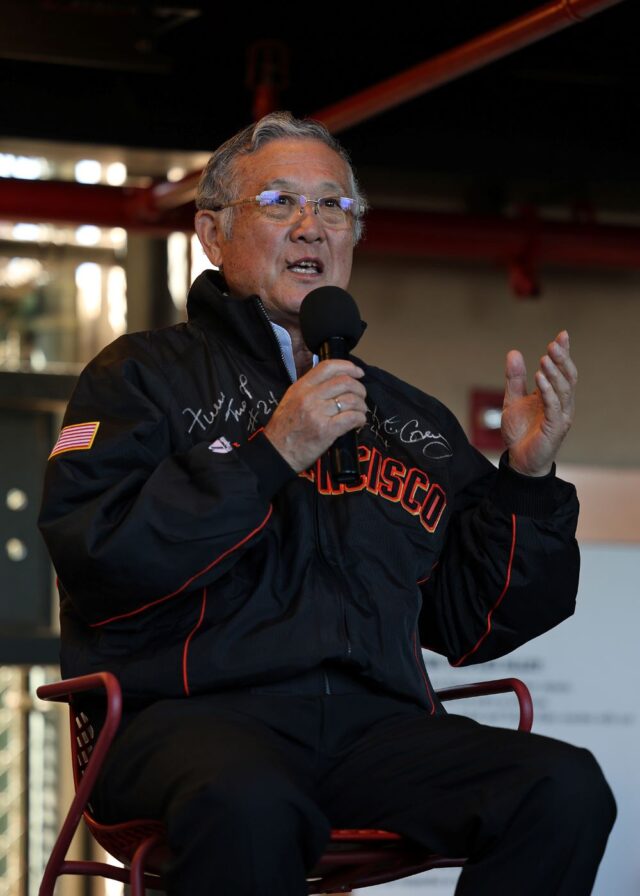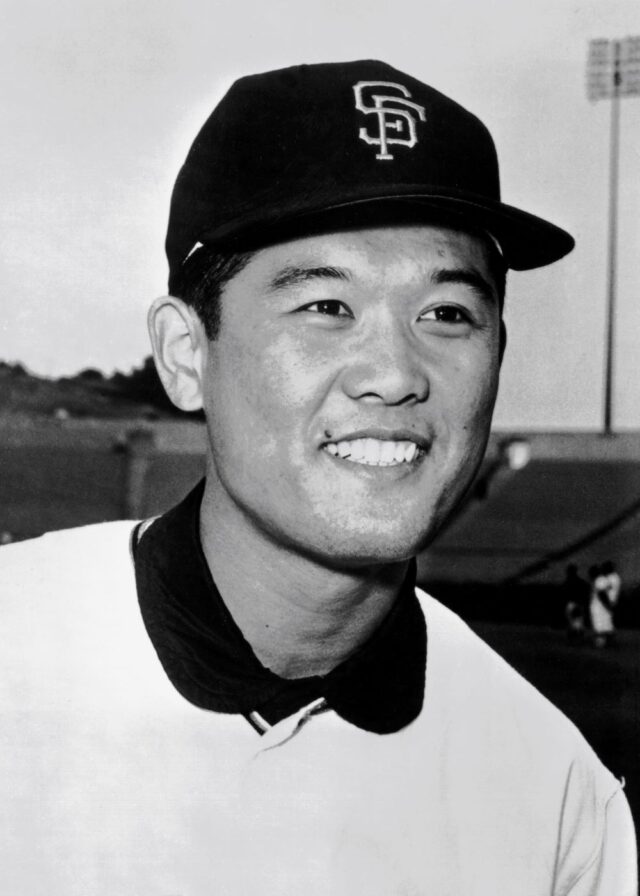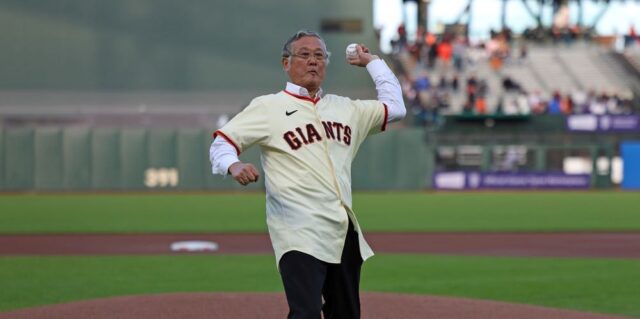Amid the drum rolls and high spirits of Japanese Heritage Night at Oracle Park on May 17, the man of the hour took center stage. As Masanori Murakami strode to the mound to deliver the ceremonial first pitch, scores of memories flooded back, both to him and to the many vintage fans in the stands.
Had 60 summers really passed since the young lefty toed the rubber for the Giants, becoming the first Japanese player in Major League history? It’s true, time actually can fly.
It was not by happenstance that Murakami became a Giant. For years, owner Horace Stoneham had searched for ways to mine the mother lode of baseball talent in Japan, as he had successfully done in Latin America. In 1964, he approached scout Tsuneo “Cappy” Harada with the idea of having three Japanese players come to the United States to learn baseball the American way.
Murakami, age 20, was among the chosen three, all of whom spent the year playing for the Giants’ Class A affiliate in Fresno. Murakami shone above the others, registering an 11-7 record with 11 saves and 1.78 ERA, and was named the California League Rookie of the Year. Unexpectedly, he became a September call-up, joining the big club during a road trip in New York.
And so it was that on the night of September 1, in the eighth inning against the Mets, Murakami found himself on the mound for the San Francisco Giants. Six decades later, he still marvels over that night. “One day I was pitching for Fresno in front of a few fans. The next day I was in New York with a full stadium,” he said. “But I wasn’t nervous. Walking in from the bullpen, I hummed “Sukiyaki” (a popular song at the time), and it relaxed me.”
Unfazed, Murakami struck out two batters in his scoreless frame, while 50 million Japanese people waited for radio reports of how he did. When the Giants returned home, Murakami found congratulatory telegrams from Mayor John Shelley and other San Francisco dignitaries. Herb Caen wrote about him in his daily column. Suddenly, Murakami was a star.
In the beginning, Murakami spoke about as much English as his teammates spoke Japanese. They nicknamed him “Mashi,” probably because they couldn’t pronounce Masanori.
For his part, Murakami let his left arm do the talking. “I couldn’t understand what the crowd was saying, so I concentrated on getting the hitters out,” he said. “I knew all of Japan was counting on me to come through.” And come through he did. In that final month of the season, he reeled off 11 straight scoreless innings, finishing with a 1.80 ERA, 15 strikeouts and only one walk.
In fact, his success caused a bit of an international incident when his Japanese team, the Nankai Hawks, wanted him back. It took the intervention of Baseball Commissioner Ford Frick and his Japanese counterpart, Yushi Uchimura, to strike a compromise.
It was determined that Mashi would spend the ’65 season with the Giants, then return to his homeland. Murakami took the decision in stride, and proceeded to post a 4-1 record with eight saves, 85 strikeouts and only 22 walks over 74 innings in his only full Major League season. “I wanted to stay in San Francisco, and I wish I could have stayed many more years,” said Murakami, who went on to pitch for 17 more seasons in Japan.
Thirty years would pass before Dodger pitcher Hideo Nomo became the second Japanese player in big league history. Today, virtually every team has at least one Asian player on its roster, most of whom have their own personal interpreter to help ease the language barrier. The lineage of stars from Ichiro Suzuki to Shohei Ohtani owe a debt of gratitude to Masanori Murakami.
He is their Jackie Robinson.






